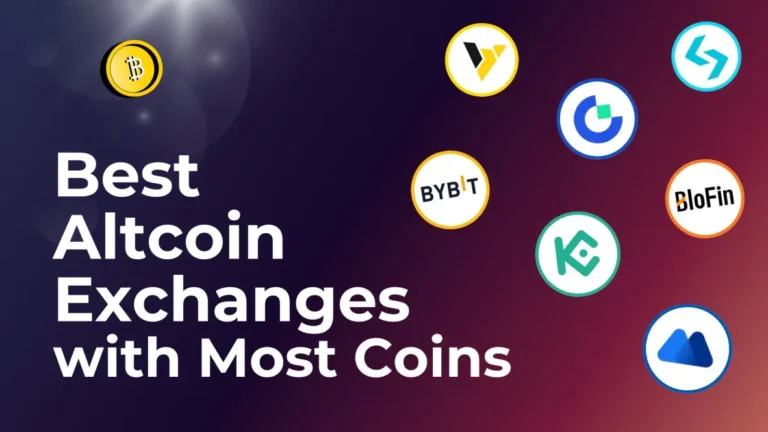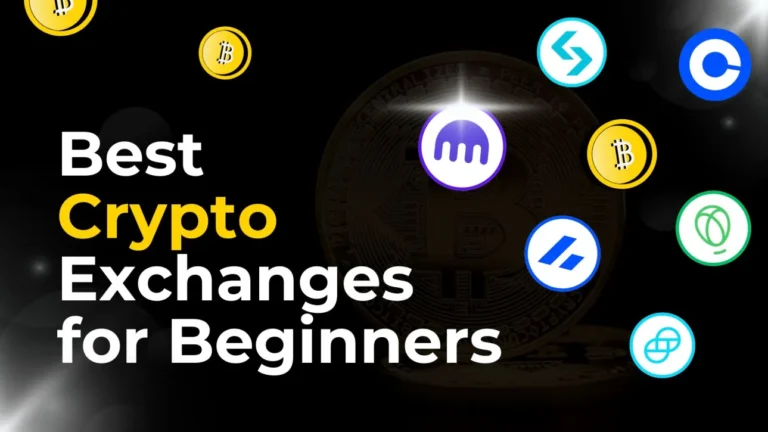Summary
When evaluating the best crypto exchanges in Tanzania, cryptocurrency trading remains legal but operates in a regulatory grey area. The Bank of Tanzania maintains a cautionary stance on digital assets while monitoring market developments. Popular payment methods include bank transfers, mobile money services like M-Pesa, and Tigo Pesa. The Tanzanian Shilling (TZS) has limited direct trading pairs on major exchanges, typically requiring USDT intermediary trades. Here are the best crypto exchanges in Tanzania:
- Bybit – Competitive fees, extensive TZS support, and advanced trading features
- MEXC – Wide range of cryptocurrencies and multiple payment methods
- OKX – Advanced trading features and institutional-grade security measures
- Binance – High liquidity P2P trading and mobile money integration
- Valr – African-focused exchange with dedicated local support
Best Crypto Exchanges in Tanzania
Tanzania’s cryptocurrency market continues to grow despite regulatory uncertainty. When selecting a crypto exchange in Tanzania, critical factors include support for local payment methods, particularly mobile money services and bank transfers. The Tanzanian Shilling (TZS) requires indirect trading paths, often through stable coins like USDT or USDC. Security features, withdrawal limits, and verification requirements impact trading efficiency for local users.
| Exchange | Supported Coins | Trading Fees | Deposit Methods | KYC |
|---|---|---|---|---|
| Bybit | 660+ | Maker 0.02% Taker 0.055% |
Credit Card, Debit Card, Apple Pay, Google Pay | Yes |
| MEXC | 2437+ | Maker 0.00% Taker 0.02% |
Credit Card, Bank Transfer, SEPA, Apple Pay | No |
| OKX | 317+ | Maker 0.02% Taker 0.05% |
Credit Card, Bank Transfer, SEPA | Yes |
| Binance | 414+ | Maker 0.02% Taker 0.05% |
Credit Card, Debit Card, P2P, Google Pay, Apple Pay | Yes |
| Valr | 107+ | Maker 0.00% Taker 0.04% |
Bank Transfer, Credit Card, Debit Card, SEPA, EFT | Yes |
1. Bybit
Users:
40m
Free Demo:
Mobile App:
Bonus
$30,000
Cryptos:
600+
Leverage:
100x
Spot Fees:
0.1%
Futures Fees:
0.02%/0.055%
Pros
- Low fees
- 600+ supported crypto assets
- 100x leverage and deep liquidity
- Advanced order types and additional features
- Great 24/7 customer support
- Automated copy trading
Cons
- Regulatory uncertainty in Europe and USA
- May be confusing for beginners
- Cryptocurrency investments carry high risks
Overview
Bybit stands out as one of the most advanced crypto exchanges with deep liquidity and low fees. Bybit users can trade Spot, Futures, Options, NFTs, and even Inscriptions. Additionally, Bybit offers copy trading and bot trading to automate your income streams. Bybit copy trading is one of the best in the crypto industry.
Where Bybit excels is its derivatives platform with 320+ perpetual futures contracts and up to 100x leverage. With advanced order types such as TWAP or Iceberg orders, Bybit caters to experienced traders seeking the best options.
On the spot market, Bybit supports over 500 cryptos and up to 10x margin, making Bybit a versatile crypto exchange.
With low fees of 0.1% maker and 0.1% taker for spot trading and 0.02% maker and 0.055% taker for futures trading, Bybit has highly competitive fees. To top it all off, Bybit offers fee discounts based on your 30-day trading volume. The more you trade, the more you save.
2. MEXC
Users:
15m
Free Demo:
Mobile App:
Bonus
$20,000
Cryptos:
2400+
Leverage:
200x
Spot Fees:
0.02%
Futures Fees:
0%/0.02%
Pros
- Lowest Trading Fees
- 2000+ supported crypto assets
- 200x leverage and deep liquidity
- 24/7 customer support
- Best for altcoin and leverage trading
Cons
- Not available in the US
- Newly launched coins pose high risk
- May request KYC in the future
Overview
MEXC is known as the crypto exchange with the lowest fees. What makes MEXC stand out is its 0% maker fee offer, meaning you can trade without any fees. However, the spot and futures taker fees start at 0.02%. No crypto exchange can compete with the MEXC fee structure.
If you are a day trader seeking high leverage, MEXC may be one of your best options. With 200x leverage over 400 futures contracts and by far the lowest fees, MEXC is truly a day trading heaven.
Even if you are not interested in leverage trading, MEXC has you covered with over 2000 supported cryptocurrencies on the spot market. While MEXC offers tons of new altcoins, we recommend being cautious as the legitimacy of newly listed projects may be questionable.
All in all, MEXC is arguably the best option for high-frequency traders seeking low fees to get the best value for money.
3. OKX
Users:
50m
Free Demo:
Mobile App:
Bonus:
$10
Cryptos:
350+
Leverage:
100x
Spot Fees:
0.14%/0.1%
Futures Fees:
0.01%/0.06%
Pros
- Highly efficient trading platform
- 350+ assets
- Free demo trading
- Fiat supported
- 24/7 customer support
Cons
- Not available in the US
- Not beginner-friendly
- Limitations and restrictions in Europe
OXK Overview
OKX is the third largest crypto exchange sorted by daily derivatives volume. This is no surprise since OKX’s focus lies in offering a high-efficiency leverage trading experience. While the UI is not necessarily beginner-friendly, it is one of the fastest and most reliable platforms we have come across.
Over 300 coins are supported on OKXs spot market while 250 contracts are available for futures trading with up to 100x leverage. What makes OKX stand out is its extensive liquidity which are without a doubt at the top of the game.
With low futures fees starting at 0.02% maker and 0.05% taker, OKX ensures a cost efficient derivatives trading environment. Spot trading fees however are on the more expensive side starting at 0.14% for makers and 0.23% for takers.
You can easily deposit funds using your credit/debit card. Additionally, you can deposit and withdraw fiat using your personal bank account, making OKX a reliable platform for on- and off-ramp funds.
4. Binance
Users:
200m
Free Demo:
Mobile App:
Bonus:
$100
Cryptos:
400+
Leverage:
125x
Spot Fees:
0.1%
Futures Fees:
0.02%/0.05%
Pros
- Most comprehensive crypto exchange
- Most advanced features and products
- 24/7 customer support
- 400+ cryptocurrencies
- Reputable with over 200 million users
- Best liquidity
Cons
- Not beginner friendly
- Restricted in many regions due to regulations
- EU traders must use BNFCR for futures trading
Overview
Reaching over 200 million registered users in 2024, Binance is by far the largest crypto exchange in the world. The platform is incredibly comprehensive, offering crypto traders all the tools they need to make a profit in the crypto market.
With over 400 cryptocurrencies to trade, leverage of up to 125x, directly integrated charts from TradingView with tons of technical analysis tools, and many more features, Binance has secured its spot as one of the best crypto exchanges.
Binance offers a wide variety of products, including spot, margin, futures, and options trading, staking, lending, P2P, automated bot trading, copy trading, and even an NFT marketplace. It is safe to say that crypto geeks will find everything they are looking for on Binance.
The trading fees on Binance are very affordable. Binance charges 0.1% trading fees on the spot market (makers and takers alike), which is the industry standard. Where Binance excels is the futures market with fees of only 0.02% for makers and 0.05% for takers.
5. Valr
Users:
500K
Free Demo:
Mobile App:
Bonus:
Earn a Share of 10,000 USDT
Cryptos:
107+
Leverage:
10X
Spot Fees:
0.40%/0.40%
Futures Fees:
-0.01%/0.1%
Pros
- Supports spot, margin, futures, and OTC trading
- Easy account setup and trading process
- Robust security measures and regulatory compliance
- 18-hour customer service and dedicated channels for businesses
Cons
- Primarily focused on the African market
- Advanced features may be challenging for beginners
Valr Overview
VALR is a cryptocurrency exchange serving 500,000 users, with a primary focus on the African market. The platform supports over 107 digital assets and offers multiple trading options including spot, margin, and futures trading with up to 10x leverage.
The exchange implements a competitive fee structure with -0.01% maker and 0.1% taker fees for spot trading. Futures trading fees are set at 0% for makers and 0.05% for takers. VALR provides additional revenue opportunities through referral commissions and liquidity provision rewards.
Security measures include mandatory KYC verification and regulatory compliance protocols. The platform offers staking and yield-generating products for passive income generation. Customer support operates for 18 hours daily, with dedicated channels for business clients. The mobile application enables trading on the go.
While VALR provides comprehensive trading features, the advanced functionalities present a learning curve for new users. The platform does not offer a demo account for practice trading. Geographic limitations restrict access primarily to African markets, and regulatory requirements vary across jurisdictions.
Is Crypto Legal and Regulated in Tanzania?
Cryptocurrency operates in a regulatory grey area in Tanzania. The Bank of Tanzania (BoT) maintains oversight of financial activities but has not established comprehensive cryptocurrency regulations. In November 2019, the BoT issued a public notice stating that cryptocurrency is not legally authorized as a currency. This stance affects banking relationships but does not prohibit individual trading.
The Capital Markets and Securities Authority (CMSA) monitors cryptocurrency activities but has not implemented specific regulatory frameworks. The authority focuses on market surveillance and consumer protection measures while developing appropriate oversight mechanisms.
Tanzania’s Financial Intelligence Unit (FIU) requires cryptocurrency service providers to implement anti-money laundering (AML) measures and know-your-customer (KYC) procedures. Trading cryptocurrency remains legal, but financial institutions face restrictions on facilitating crypto transactions. The government maintains the position that cryptocurrencies are not legal tender while acknowledging the technology’s potential.
Is Crypto Taxable in Tanzania?
The Tanzania Revenue Authority (TRA) has not established specific cryptocurrency tax guidelines. Current taxation frameworks treat cryptocurrency gains under existing capital gains tax regulations. Short-term trading profits face taxation at the standard income tax rate of 30% for individuals. Cryptocurrency miners must register as business entities and pay applicable taxes.
Mining operations require registration as business entities and face corporate tax rates between 25% and 30%. Long-term cryptocurrency investments held for more than 12 months may qualify for capital gains considerations. The TRA monitors large cryptocurrency transactions through financial institution reporting requirements. Traders must maintain transaction records for tax assessment purposes.
Disclaimer:
Tax laws are subject to change, and individual circumstances may vary. It is strongly advised to consult with a qualified tax professional or financial advisor for personalized guidance on cryptocurrency taxation in Tanzania.
How to Buy Crypto in Tanzania
The process of purchasing cryptocurrency in Tanzania requires consideration of local payment methods and exchange restrictions. Bybit provides a secure platform with support for Tanzanian users and multiple payment options including mobile money services.
- Choose a cryptocurrency exchange that accommodates Tanzanian payment methods, features competitive fees, and complies with local regulations. Ensure the platform has robust security protocols and policies in place to protect users.
- Begin the registration process by submitting the necessary identification for KYC verification. This usually involves providing a valid government-issued ID along with proof of residence.
- Deposit funds into your account via bank transfers, M-Pesa, Tigo Pesa, or credit cards. Utilizing mobile money services allows for convenient local payment options with quicker processing times.
- Select from a range of cryptocurrencies, such as Bitcoin (BTC), Ethereum (ETH), or stablecoins like USDT. Pay attention to market liquidity and available trading pairs when making your selection.
- Execute trades using either spot markets or P2P platforms, depending on your trading preferences. P2P trading can often yield better rates for transactions involving Tanzanian Shillings (TZS).
- After acquiring cryptocurrencies, transfer them to a secure wallet for long-term storage. Employ adequate security measures, including two-factor authentication, to safeguard your assets.
P2P trading platforms enable direct user-to-user transactions and typically offer competitive rates for TZS pairs. The integration of mobile money simplifies and speeds up transactions for local traders. When selecting your trading methods, consider trading fees, spread costs, and withdrawal limits.
Best Crypto Wallets in Tanzania
Choosing the right cryptocurrency storage solutions is vital for protecting your digital assets. Hardware wallets offer the highest level of security for long-term investments and substantial holdings.
Ledger and Trezor provide offline storage options with support for multiple currencies and enhanced security features. These devices shield private keys from online threats and malicious software.
Mobile wallets such as Trust Wallet and Exodus offer easy access for everyday transactions. These apps feature user-friendly designs and support a wide range of cryptocurrencies.
For engaging in DeFi, MetaMask allows users to connect with decentralized applications and supports ERC-20 tokens. Mobile wallets also link with local payment systems, making it simpler to convert between cryptocurrency and TZS.
Bottom Line
For Tanzanian cryptocurrency traders, the best crypto exchanges in Tanzania provide varying advantages for different trading needs. Bybit leads with comprehensive TZS support and competitive fees, while MEXC provides extensive cryptocurrency options and robust security measures. These platforms maintain strong security protocols and support local payment methods, making them optimal choices for Tanzanian users entering the cryptocurrency market.







